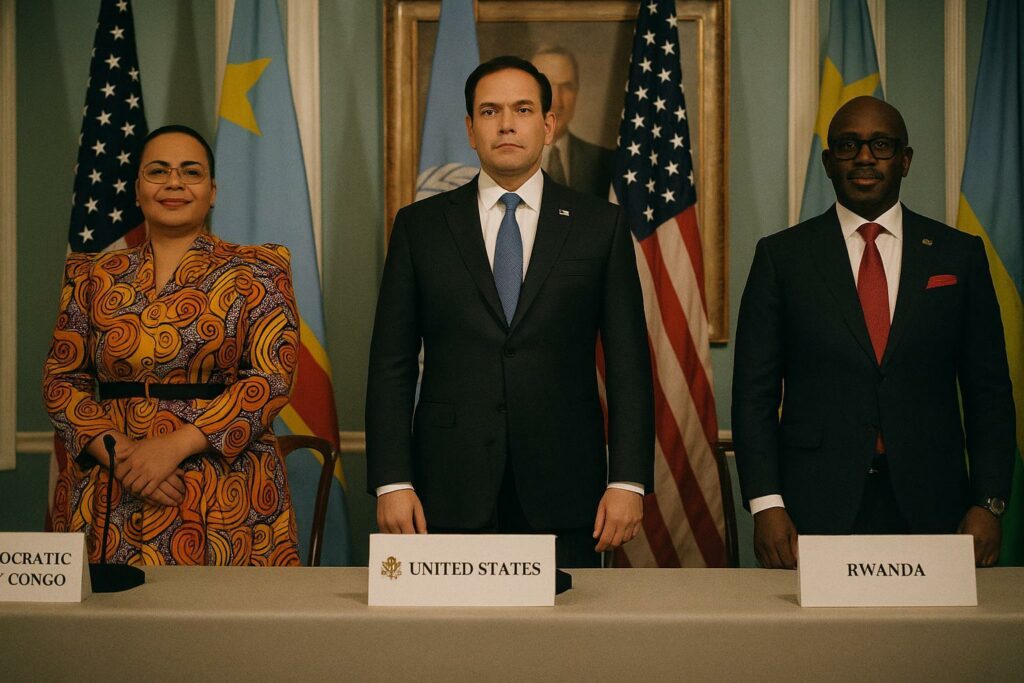A Treaty Amidst Conflict
Former President Donald Trump’s declaration of brokering a peace treaty between the Democratic Republic of the Congo (DRC) and the Republic of Rwanda has surfaced amid a protracted conflict largely centered around lucrative mineral resources. Trump’s announcement, made on Truth Social, holds that Secretary of State Marco Rubio played a pivotal role in reaching this agreement.
A Long-standing Tension
The conflict that persists between the DRC and Rwanda dates back decades, predominantly fueled by the allure of the DRC’s abundant deposits of minerals such as coltan, cobalt, and lithium—key components in advanced electronics. The resurgence of clashes in 2022 exacerbated the situation, particularly with the alleged support by Rwandan forces for the rebel group, known as the March 23 Movement (M23).
Diplomacy and Accusations
Despite the promising accord, analysts like Daniel Van Dalen of Signal Risk caution that genuine peace depends on the participation and compliance of the M23 faction, which remains conspicuously absent from the agreement. Notable allegations against Rwanda imply the country has utilized M23 as a front to exploit and export minerals at an unaccounted surge, raising concerns over the treaty’s efficacy.
Trump’s Quest for Recognition
Trump’s lament over his Nobel Peace Prize prospects underscores his broader skepticism regarding awards and recognition roles in international diplomacy. Despite being nominated on multiple occasions for various peace efforts, Trump’s achievements in international diplomacy, including attempts on the Abraham Accords and de-escalating Indo-Pakistani tensions, echo with understated acknowledgment in global corridors of power.
Uncertainties and Opportunities
As Washington prepares for the treaty’s official signing, questions linger as to the treaty’s capabilities to ensure lasting peace. However, should stability emerge, this could potentially result in an influx of U.S. investments into the DRC’s mineral sectors, facilitating economic growth and geopolitical shifts in the region.

